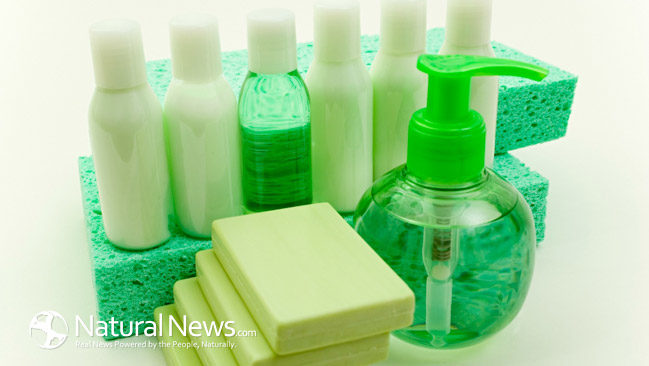Maintaining a clean household is an important part of home ownership, but when the chemicals we use to clean countertops and toilets do take their toll on our bodies and the environment, one has to wonder if it’s worth it. While cleaning their house, most people don’t take into consideration the dangerous cocktail of chemicals found in common cleaning solutions. According to the Organic Consumers Association in 2010, approximately 10% of all toxic exposures reported to US Poison Control Centers were from household cleaning products. Personal injury attorney, Bill Black, echoes these sentiments, as he’s taken on “many cases where cleaners that have been labeled as safe have had serious health impacts. Especially with children.” Through marketing and habit, these products are seen as the only path to a truly clean house, but that is not the case. There are a variety of natural (or at least more natural) cleaning solutions that can be made with ingredients that are probably already in your pantry. Not only are they easier on the environment, they are also easier on your wallet. Here are the top 5 safe alternatives to traditional household cleaners:
1. Baking soda, aka sodium bicarbonate, is perhaps the most versatile cleaning product already in your house. Your refrigerator probably has a box of baking soda in it already, and that is because it acts as a deodorizer by absorbing unwanted smells. Put away the harsh sprays in favor of a light sprinkle of baking soda. It’s also effective as a polish for aluminum, chrome, porcelain, silver, and stainless steel.
2. White vinegar is the runner in the versatility category. It is a natural disinfectant and deodorizer. To use it has a countertop cleaner, try mixing 1 part vinegar to 1 part water and using a thoroughly rinsed out spray bottle to apply it to the surface of your choosing. It’s especially effective at cutting grease and eliminating mildew from showers and kitchen surfaces.
3. Lemon juice is the perfect ingredient for homemade cleaners – it is a natural disinfectant and stain remover. To quickly disinfect any surface, cut a lemon in half, rub the cut side on anything from cutting boards to copper pots, and thoroughly rinse with hot water. To tackle stubborn stains, baking soda with just enough baking soda to create a paste that can be used to dissolve soap scum, hard water deposits, and even mold. For maximum efficiency, let the past sit for 10 minutes before wiping away with a damp cloth.
4. Borax, also referred to as sodium borate, is a natural mineral compound, that when mixed with hot water creates a basic solution. Borax inhibits the metabolic process of bacteria and can even be used as a safer pest repellent. Like many of the other ingredients on this list, borax can be used in a variety of ways. 2 tablespoons of borax combined with 1 gallon of warm water yield a gentle yet effective cleaning solution for tile and vinyl. To clean and freshen your garbage disposal, simply sprinkle 3 tablespoons of borax down the drain, allow it to do its work for 15 minutes, then rinse with hot water while running the garbage disposal.
5. When you’re done brushing your teeth, apply a dab of toothpaste to scratched acrylic appliance and work in with a brush to diminish scratches. Because toothpaste is a mild abrasive with antibacterial properties, it is perfect for polishing chrome fixtures, tarnished silverware, and even piano keys. Most toothpastes will work, but be sure to stay away from gels and brands that advertise whitening and tartar control.
Sources for this article include:
http://www.jcaa.org/news/references/Sierra%20Club%20a%20safer%20alternative%20nonylphenol_ethoxylates3%5B1%5D.pdf
http://www.earthclinic.com/remedies/borax.html
http://www.realsimple.com/home-organizing/cleaning/all-natural-cleaning-solutions/toothpaste-1





